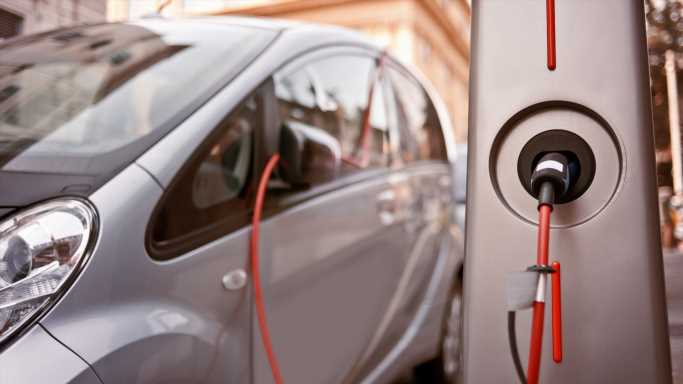U.S. lawmakers are trying to push increased adoption for electric vehicles by boosting the number of available EV charging stations and offering tax breaks on EV purchases. However, it’s looking like all Americans will be paying for the installations of those charging stations, whether or not they drive EVs.
Meanwhile, some lawmakers are concerned that many or potentially even most electric vehicles won’t even qualify for the tax breaks.
Who’s Paying For All Those EV Chargers?
It’s no secret that the U.S. requires a sizable investment in public EV charging stations to support the expected spike in demand for electric vehicles. However, those investments don’t make sense for many companies until there are enough EVs on the roads to support those public chargers.
Further, drivers will continue to hesitate when it comes to buying EVs due to the lack of charging stations. Axios explained that regulated public utilities will probably be able to solve this problem because they can pass on the financial burden of building those public chargers to their customers over the coming years.
U.S. electric utility companies nationwide are planning to build vast EV charging networks throughout their service areas. For example, last week, Minnesota’s Xcel Energy announced plans to spend $170 million on building about 750 rapid-charging stations in Minnesota and Wisconsin over the next four years.
Problems With Building EV Charging Infrastructure
The plan is just a small part of its wider $300 million initiative to support electric vehicles. However, the two states’ public utility commissions must still approve those plans. If they are approved, Xcel customers would ultimately foot the bill for those public EV chargers, whether or not they own an electric vehicle.
Xcel’s plan would incentivize its customers to purchase EVs by offering them a steep discount on the electricity they consume at its chargers. However, everyone else would see higher electric bills, including those who can’t afford to buy an EV anytime soon, because many communities just have one utility company.
Axios noted that gas stations, convenience stores and other private businesses are attempting to move into the EV-charging industry. That places them in direct compensation with the public utilities they’re paying for the electricity used to charge those vehicles.
The Retail Fight
However, retailers are at a disadvantage against public utilities due to “demand charges” based on the maximum amount of electricity commercial customers can use at any time during their billing cycle. For example, if only one EV driver plugs their vehicle into a 150-kWh fast charger for a half-hour, electricity demand will spike. As a result, the retailer would be billed at the peak demand level for the whole month.
The federal government is handing out grant money to support the construction of the EV charging infrastructure. It requires eligible EV chargers to be easily accessible to drivers and have amenities like restrooms and food. As a result, regulators could be incentivized to level the playing field for retailers by establishing a fixed wholesale price for electricity, although it hasn’t happened yet.
Few Eligible EVs?
Meanwhile, the Alliance for Automotive Innovation, a lobbying group for automakers, says the conditions Democrats want to impose on electric vehicles for them to be eligible for the tax cuts will make most EVs ineligible. Reuters reported that the automakers have been raising their concerns privately with lawmakers, calling for a “more gradual phase-in” for the requirements.
The lobbying group represents Ford Motor Company (NYSE:F), General Motors Company (NYSE:GM), Toyota Motor Corp (NYSE:TM) and a few other automakers. It said the proposal would mean 70% of the electric, plug-in hybrid and fuel-cell EVs would not be eligible for the $7,500 tax credit if it passes.
Teslarati spoke to Talon Metals, one of Tesla’s key suppliers of nickel and other battery minerals. Tesla which belongs to another automotive lobbying group called the Zero Emissions Transportation Association (ZETA), which supports the proposal. Thus, it appears that Tesla might not have the same problem as other automakers.
This article originally appeared on ValueWalk
Sponsored: Tips for Investing
A financial advisor can help you understand the advantages and disadvantages of investment properties. Finding a qualified financial advisor doesn’t have to be hard. SmartAsset’s free tool matches you with up to three financial advisors who serve your area, and you can interview your advisor matches at no cost to decide which one is right for you. If you’re ready to find an advisor who can help you achieve your financial goals, get started now.
Investing in real estate can diversify your portfolio. But expanding your horizons may add additional costs. If you’re an investor looking to minimize expenses, consider checking out online brokerages. They often offer low investment fees, helping you maximize your profit.
Source: Read Full Article
-
‘An absolute mess’: Ubank apologises for app issues blocking people from their accounts
-
Barclays Picks 2 Winners and 2 Losers After Earnings
-
Gemini Accuses Barry Silbert of Foul Play, Calls on DCG to Repay $900M
-
‘Everyone thinks I’m a criminal’: The millennial money manager and the missing millions
-
Apple’s iPhone Sales Catastrophes Mount

